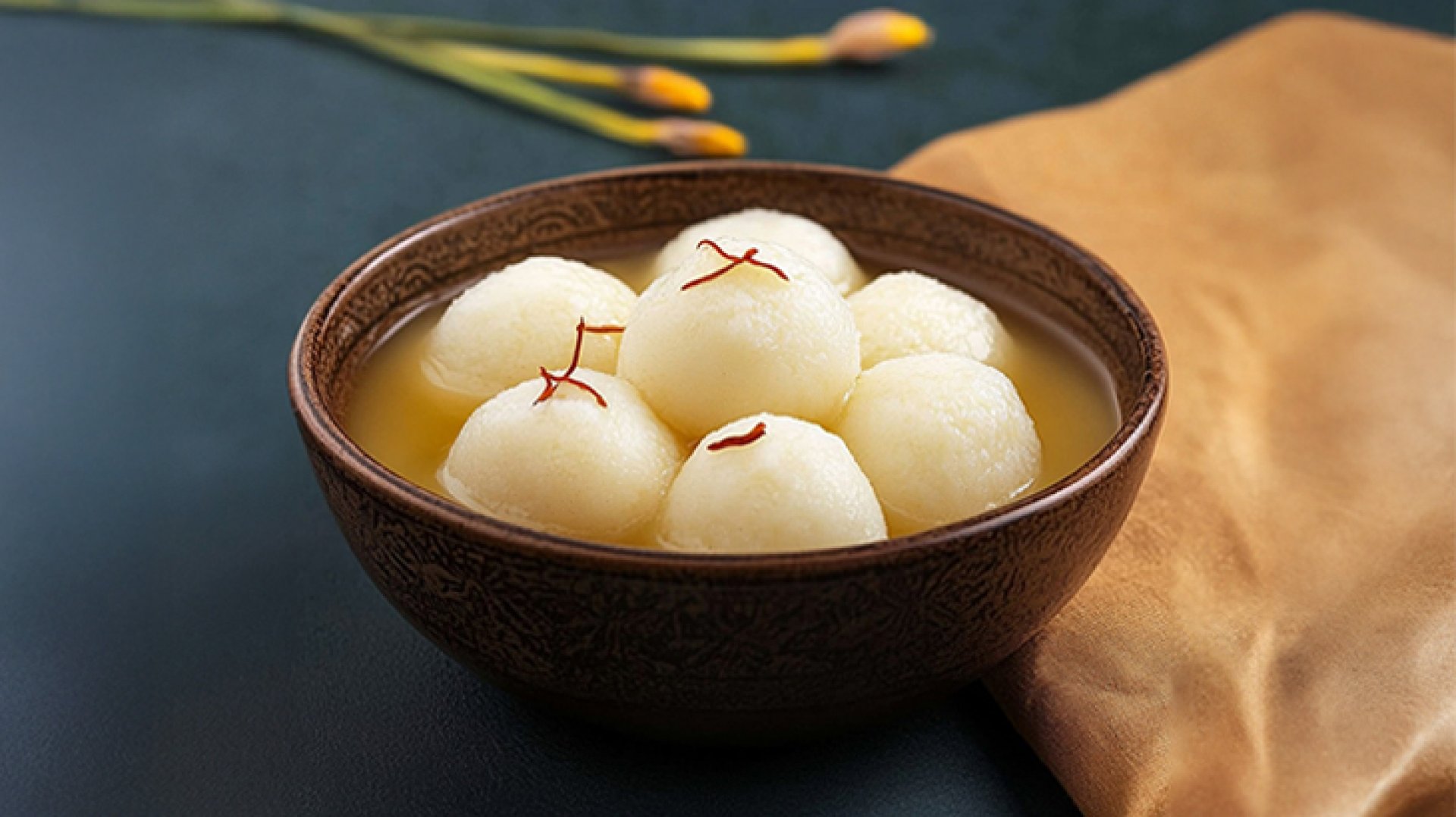Rasgulla

What is Rasgulla?
Rasgulla is a popular Indian dessert made from chhena, a type of fresh cheese made from cow or buffalo milk. The cheese is shaped into small round balls and boiled in sugar syrup until they absorb the syrup, resulting in a soft, spongy texture with a sweet, fragrant flavor that melts in the mouth.
Origins and Historical Background
Rasgulla originated in Odisha, eastern India, where it is closely linked to the rituals of the Jagannath Temple in Puri. According to legend, Rasgulla was offered to Goddess Lakshmi as a form of apology from Lord Jagannath during the Ratha Yatra festival.
In the 19th century, Nabin Chandra Das from Bengal developed a new version of Rasgulla with a softer texture and larger size. This recipe became widely popular and is the Rasgulla commonly known today.
How Rasgulla is Made
The process begins by boiling cow or buffalo milk and curdling it with an acid like lemon juice or vinegar to form chhena. The chhena is then drained, kneaded into a smooth dough, shaped into small balls, and boiled in sugar syrup until soft and infused with sweetness.
Cultural Significance and Popularity
Rasgulla is enjoyed throughout India and worldwide, with variations including flavors like rose, cardamom, and saffron. It holds cultural and religious significance, often associated with festivals, rituals, and symbolizing love and affection.
The GI Dispute
There has been a long-standing dispute between Odisha and West Bengal over the ownership of Rasgulla. In 2017, West Bengal received the Geographical Indication (GI) tag for Banglar Rasgulla, recognizing its unique recipe, while Odisha also secured a GI tag for its version of Rasgulla.


